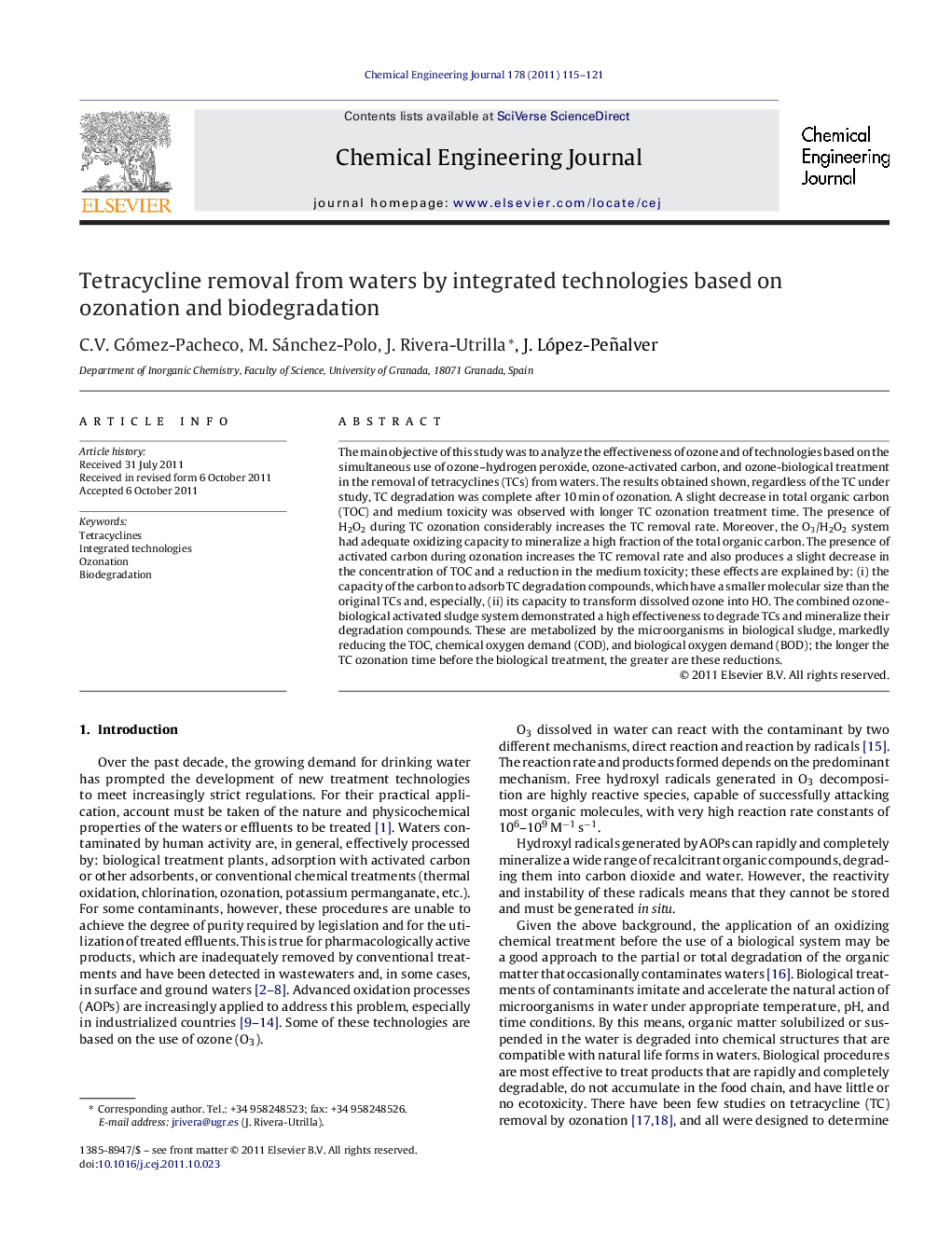| کد مقاله | کد نشریه | سال انتشار | مقاله انگلیسی | نسخه تمام متن |
|---|---|---|---|---|
| 150452 | 456450 | 2011 | 7 صفحه PDF | دانلود رایگان |

The main objective of this study was to analyze the effectiveness of ozone and of technologies based on the simultaneous use of ozone–hydrogen peroxide, ozone-activated carbon, and ozone-biological treatment in the removal of tetracyclines (TCs) from waters. The results obtained shown, regardless of the TC under study, TC degradation was complete after 10 min of ozonation. A slight decrease in total organic carbon (TOC) and medium toxicity was observed with longer TC ozonation treatment time. The presence of H2O2 during TC ozonation considerably increases the TC removal rate. Moreover, the O3/H2O2 system had adequate oxidizing capacity to mineralize a high fraction of the total organic carbon. The presence of activated carbon during ozonation increases the TC removal rate and also produces a slight decrease in the concentration of TOC and a reduction in the medium toxicity; these effects are explained by: (i) the capacity of the carbon to adsorb TC degradation compounds, which have a smaller molecular size than the original TCs and, especially, (ii) its capacity to transform dissolved ozone into HO. The combined ozone-biological activated sludge system demonstrated a high effectiveness to degrade TCs and mineralize their degradation compounds. These are metabolized by the microorganisms in biological sludge, markedly reducing the TOC, chemical oxygen demand (COD), and biological oxygen demand (BOD); the longer the TC ozonation time before the biological treatment, the greater are these reductions.
► The tetracyclines (TCs) toxicity decreased only with longer ozonation time.
► The TCs ozonation rate is increased by adding activated carbon.
► The combined system O3-biological activated sludge is highly effective to mineralize TCs.
Journal: Chemical Engineering Journal - Volume 178, 15 December 2011, Pages 115–121